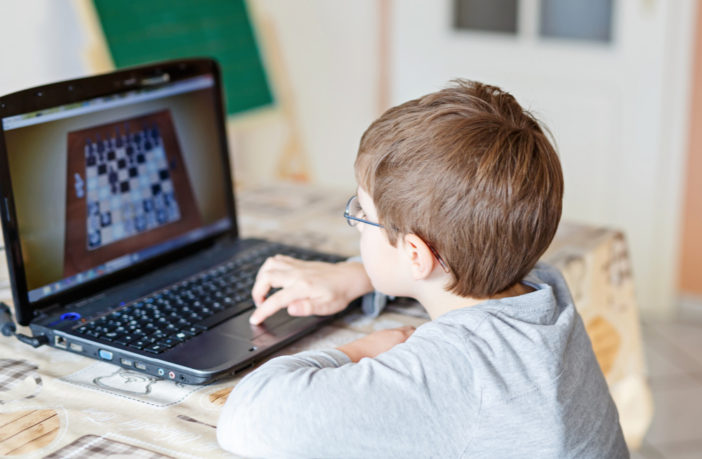Professor Rose Capdevila, Associate Dean (Research, Scholarship and Enterprise) and Dr Lisa Lazard, Senior Lecturer in Psychology, both from The Open University, write for The Conversation about how online board games can bring grandparents closer to their grandchildren.
We’re all familiar with the blissful image of grandma or grandpa playing snakes and ladders with their grandchild – or a large family sat round a table at Christmas over a game of Scrabble, Monopoly or Cluedo.
You’d be forgiven for thinking that the popularity of board games might have waned in favour of the smartphone, tablet or other online gaming. In fact, the market value of board games has been growing considerably in recent years.
While board games were already on the rise pre COVID, lockdown fuelled this trend. A study conducted during the lockdowns suggested nostalgia may have been an important factor in how people coped with isolation, both dusting off board games for solace and watching classic films.
According to a study carried out in Sweden, board games can help children learn about relationships, to become more socially adept and develop their cognitive abilities. Research suggests playing board games can also enhance family togetherness across the generations.
Close but far
The COVID lockdowns gave us a unique opportunity to study the extent to which families separated by geography managed to maintain that warm glow of togetherness all year round. Suddenly, even relatives who were used to seeing their grandchildren, nieces and nephews on a regular basis were forced to depend upon technology to communicate.
Those with experience of family video calls will know that conversations between older and younger people can often be uncomfortable. Grandparents ask formal questions – how’s school? What’s your favourite subject? – and get monosyllabic responses. The children will then wander away, leaving their parents to continue the conversation.
We wanted to explore how families can use technology to connect and build their relationships, and how game playing, specifically board games, could improve the quality of interactions between grandparents and grandchildren.
Extended family members who lived in different places became more separate than ever during the pandemic and many families struggled to sustain intergenerational relationships. This kind of geographical separation, research suggests, can hinder the development of emotional closeness in the relationships between grandparents and grandchildren.
Our research aimed to address this gap. We know that the relationship between grandparents and grandchildren can be mutually beneficial. It can contribute to children’s development and help grandparents adapt to the ageing process.
Studies have shown that play using technology can help maintain grandparent-grandchild relationships, as well as improving older people’s digital literacy and reducing their social isolation. It may also benefit children’s development and support parents in replacing “bad” screen time.
We gave families something to talk about. We asked pairs of grandchildren and grandparents living in the UK to play the well known board game Articulate, adapted for online play. We interviewed 12 pairs of grandparents and grandchildren together before the game, and then observed their game play during a video call.
We found that it was an overwhelmingly positive experience for grandparents and grandchildren alike. During play, they talked about shared memories relevant to the game and there was much fun and laughter. Grandparents also showed grandchildren love and care through celebrating their game successes. All participants reported that, in contrast to their standard video call, game-playing enabled longer, more enjoyable and meaningful interaction.
We partnered with child development experts Anna Taylor and Amanda Gummer from play consultancy Fundamentally Children for this research. Their face-to-face research on intergenerational play found that grandparents feel pressure to adopt technology for fear of missing out on their grandchild’s lives.
After lockdown
Children develop impressive expertise in online gaming early in life. Older adults, however, are often less familiar with new technology but are far more experienced in traditional pastimes.
A key barrier to intergenerational play on the video calls in our study was that online board game instructions did not take advantage of children’s expertise. Grandparents looked to grandchildren for help setting up but game instructions are written for adults.
Our findings suggested that intergenerational board game play normally happens on special occasions or holidays, particularly Christmas. Playing games in everyday life is something that children do. But video-calling technologies mean family time is no longer reliant on physically coming together. Technology allows those family dramas over Monopoly to happen anytime, not just at Christmas.![]()
Rose Capdevila, Professor in Psychology, The Open University and Lisa Lazard, Senior Lecturer in Psychology, The Open University
This article is republished from The Conversation under a Creative Commons license. Read the original article.



